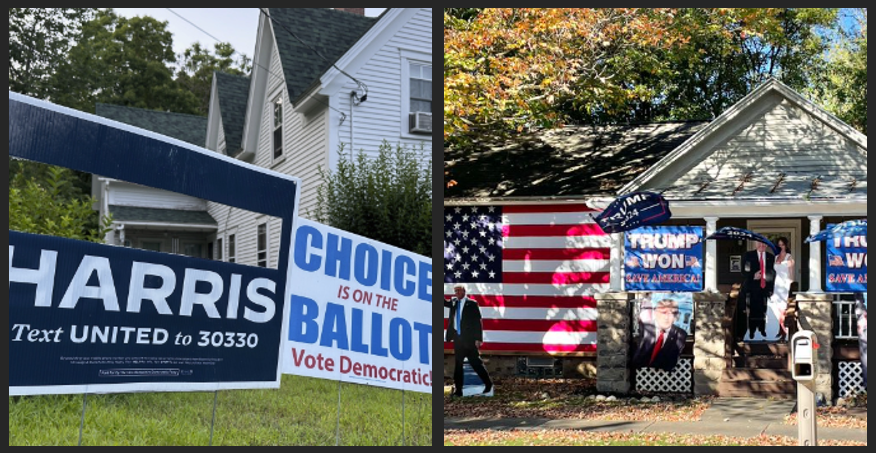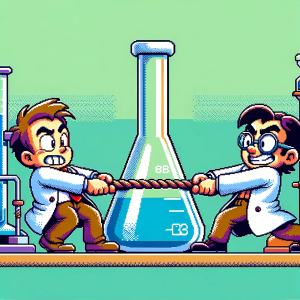
The Election That Changed Nothing
Why Political Polarization Endures
Politics has always been a battleground of ideas, but in recent years, something deeper and more divisive has emerged. You’ve likely felt it too—the overwhelming sense that no matter the outcome of elections, our political divisions persist, sometimes even hardening. The 2022 U.S. election was no exception. Despite predictions that partisan tensions would relax once the results were in, the data shows something unsettling: polarization didn’t wane. In fact, it remained locked in place, no matter which side voters were on.
The Campaign That Never Ended
Imagine politics as a boiling pot. Traditionally, as elections approach, the heat gets turned up. Candidates spar, campaign ads flood our screens, and our partisan identities become more pronounced. But after Election Day, the temperature is supposed to lower as the dust settles. We move on—well, at least, that’s the theory. For decades, political scientists believed this cycle was natural, with post-election calm restoring some level of unity or at least cooling down the more intense divides. The findings from this new research paint a far different picture.
This study analyzed data from over 66,000 interviews, conducted before, during, and after the 2022 election. The results? Polarization didn’t budge. Voters’ dislike for the opposing party stayed consistently high before and after the election, even for those who voted for the winning candidate. Think about that—winning didn’t soothe tensions, and losing didn’t worsen them. The campaign, in essence, never really ended.
Locked-In Animosity: Why It Matters
But why should we care about polarization sticking around? Because it isn’t just about politics. Polarization seeps into every aspect of life—our relationships, our communities, even our workplaces. You’ve probably noticed this in your own life. Maybe you’ve had a strained conversation with a family member over Thanksgiving or felt uneasy bringing up certain topics at work. When partisan animosity becomes a permanent feature of society, it’s harder to find common ground.
The durability of polarization matters now more than ever. We’re in an era of continuous campaigning, where politics feels like a 24/7 broadcast. Whether it’s the flood of political ads or the constant stream of breaking news, voters are being primed every day to see the other side as not just wrong, but dangerous. This isn’t just about policy disagreements anymore—this is about deep-seated distrust.
Exposure to Campaigns Only Fuels the Divide
Here’s something the study found that’s particularly striking: voters who were exposed to more campaign messaging tended to be more polarized. Think of it this way—if you live in a swing state, where candidates pour millions into advertisements and rallies, you’re more likely to develop a deeper disdain for the opposing party. The researchers found that areas with higher campaign activity saw more entrenched divisions, and these feelings didn’t fade away after Election Day.
You might assume that once the election is over and the campaign ads stop running, people would relax. But this study suggests that the damage is already done. Campaign exposure essentially locks in polarization, creating a kind of mental scar tissue that doesn’t easily heal. This is where the real-world impact becomes clear. The longer campaigns drag on, the more they stoke not just political engagement but animosity—and once that animosity takes root, it’s here to stay.
Winners Aren’t Any Less Polarized Than Losers
What’s perhaps most surprising about this research is that it shatters a long-held belief: that the supporters of the winning candidate would feel less polarized post-election. After all, if your side wins, you’ve got less to be angry about, right? Wrong. The study found that partisans on the winning side were just as polarized as those who lost. This suggests that political victory doesn’t offer any kind of emotional release or catharsis.
If anything, this finding highlights just how deeply entrenched our divisions have become. Winning or losing doesn’t change how we feel about the other side. The animosity is baked in, and no election result seems capable of undoing it.
The Bigger Picture: What Does This Mean for the Future?
So, where does that leave us? If elections can no longer cool down political tensions, what can? The study suggests that these divides are becoming a permanent feature of American life, with significant implications for our democracy. When we view the other side not just as political opponents but as enemies, we risk undermining the very fabric of democratic society.
This polarization has real-world consequences. People who are more polarized are less likely to support democratic norms, like respecting the results of an election or tolerating differing viewpoints. Worse still, the research shows that even support for political violence has become more normalized. While the levels of support are still low, the fact that anyone supports violence for political reasons should be a wake-up call.
The question now is, how do we fix this? The data suggests that merely voting in elections isn’t enough to heal these divides. We need to find ways to reconnect with people who think differently, to rebuild trust across the aisle. This is no small task, but it’s essential if we’re going to preserve a functioning democracy.
Join the Conversation
What do you think is the root cause of our deep political divides? Can anything be done to reduce polarization, or is it now a permanent feature of American life? Share your thoughts in the comments below and let’s discuss how we can move forward—together.
Explore and Learn with Science:
Dive into groundbreaking research and inspiring stories with ‘This Week in Science’! Perfect for teachers and science enthusiasts, our free weekly newsletter expands your horizons in teaching and learning. Join us today and reshape your engagement with science. If you liked this blog, please share it! Your referrals help This Week in Science reach new readers.



